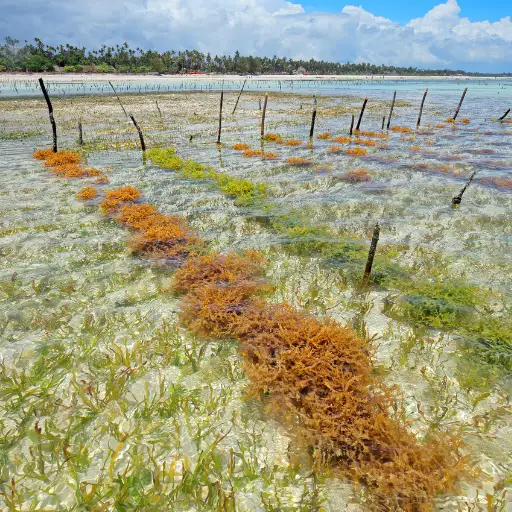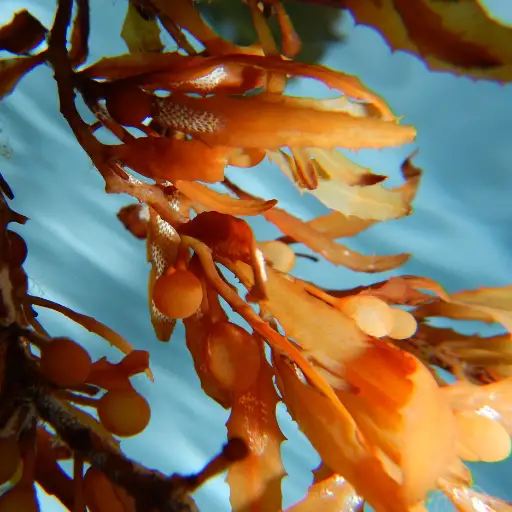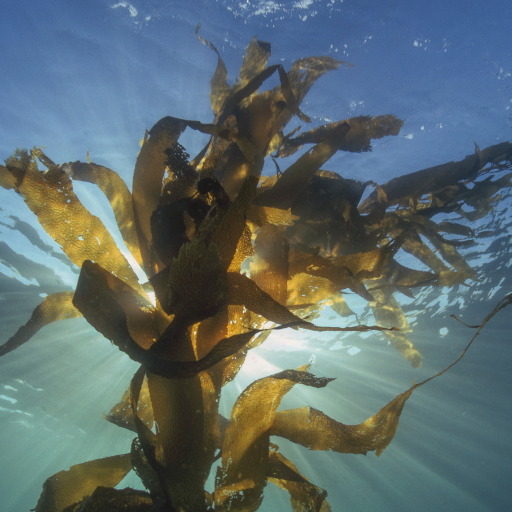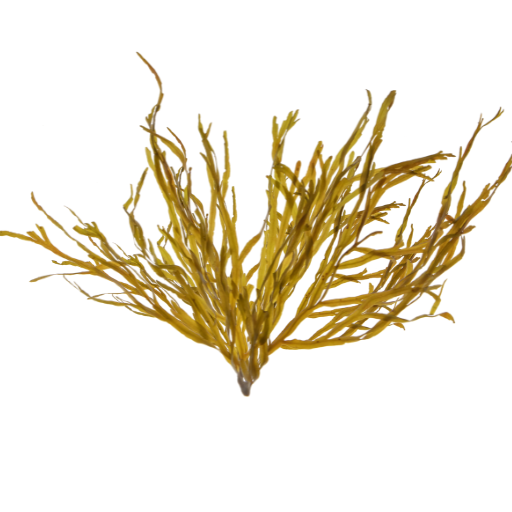Kelp manure, derived from nutrient-filled seaweed found in the sea along the shorelines, has been noticed as a very strong plant organic fertilizer. In a time when sustainable agriculture and eco-friendly practices are increasingly relevant, kelp fertilizers set-asides themselves as a result of whole advantages to plant growth and soil conservation. This guide seeks to provide deeper insight into kelp fertilizer by revealing its composition, methods of its application and many benefits it has over traditional chemical fertilizers. By plunging into kelp biochemistry and understanding their role in enhancing plant vigor, this part gives readers a scientific understanding of why the use of Kelp Fertilizer is indispensable for organic farming.
What is kelp fertilizer and how does it benefit your garden?
Kelp manure is a natural plant food that comes from nutrient-rich seaweed, especially from brown algae species such as Ascophyllum nodosum. This kelp manure is rich in necessary minerals, vitamins, and growth hormones like cytokinins, auxins, and gibberellins which foster healthy plant growth. It also improves soil structure by enhancing water retention and encouraging beneficial microbial activity. Moreover, it also promotes hardiness against environmental stressors such as drought conditions, frost damage, and pest attacks, thus making it a versatile and eco-friendly substitute for synthetic fertilizers in gardening and agricultural practices.
What is kelp fertilizer?
Seaweed organic fertilizer called kelp fertilizer belongs to the family of green organic fertilizers products mostly composed of brown algae species like Ascophyllum nodosum. The plants are obtained from near-coastal waters after which they process to form high-value plant foods. Important constituents of this type of organic soil include macronutrients nitrogen (N), phosphorus (P) and potassium (K) that come in different amounts depending on source and method used during manufacture. It also contains micronutrients such as magnesium (Mg), calcium (Ca), and iron (Fe), among others, essential for the good health of plants. In addition, presence of phytohormones like cytokinins, auxins, gibberellins in kelp fertilizer play an important role in stimulating plant growth, root development improvement and stress tolerance enhancement.. Further still, improved water retention increases the overall fertility status of the soil by promoting beneficial activities by soil microorganisms, thereby bettering resilience both at the crop level as well as within the entire ecosystem.
How does kelp manure boost plant vigor?
There are several ways in which kelp manure increase growth health span in plants. First of all; these substances supply macronutrients which are nitrogen (N), phosphorus (P), potassium (K) that are vital for various physiological processes. Nitrogen is important in protein synthesis, whereby phosphorous is an essential player in energy transfer via ATP, while potassium helps to maintain osmotic balance and activate enzymes. There are also sufficient amounts of essential micronutrients such as magnesium (Mg), calcium (Ca), and iron (Fe), which support chlorophyll production and cell wall formation and enhance electron transportation in photosynthesis, respectively.
Lastly, phytohormones like cytokinins, auxins, and gibberellins, among others, found in kelp fertilizer promote plant development. Cytokinins stimulate cell division, thereby delaying senescence; auxins help support root growth and elongation, whereas gibberellins enhance seed germination and stem elongation. All these hormones collectively affect root architecture and nutrient uptake efficiency.
Additionally, kelp manure enhances the tolerance level of plants against environmental challenges. For example, it contains alginates, which facilitate soil water retention, especially during drought conditions. It also promotes the multiplication of useful soil microorganisms that play a big role in nutritional cycling as well as organic matter decomposition. Together, they make a more resilient plant that can withstand both biotic and abiotic stresses effectively, thus ensuring better crop health.
Major nutrients available in kelp fertilizer
Key Macro- Nutrients:
- Nitrogen(N): When levels are enough to ensure robust vegetative growth, it is required for protein synthesis and chlorophyll production.
- Phosphorus(P): This is another important element transferred through ATP used during energy flow, root development and flowering process.
- Potassium(K): Maintains osmotic equilibrium and acti-vates major enzymes utilized by various metabolism pathways.
Micronutrients include:
Magnesium(Mg): Most importantly, this mineral is related to chlorophyll synthesis, so its influence on photosynthetic efficiency cannot be undermined.
Calcium(Ca): It is involved in formation of cell walls and membrane permeability.
Iron(Fe): Overall, there are electron carriers in photosynthesis as well as cellular respiration processes that depend on this element.
Moreover, kelp fertilizer consists of phytohormones called:
Cytokinins: They help cells divide thus changing senescence by increasing lifespan.
Auxins: vital for the elongation of roots and the development of an entire root system.
Gibberellins: stimulate stem growth, support seed germination
Technically, the average N-P-K ratio in kelp fertilizer differs, mostly around 1-0.5-2. Furthermore, maintaining micronutrient levels is targeted at fulfilling specific ppm (parts per million) demands, such as Magnesium, which lies between 0.5 and 1.0%, Calcium, ranging from 0.4 to 0.8%, and Iron, which fluctuates between 50 and 100ppm, for balanced nutrient availability.
Can kelp fertilizer enhance plant growth?

Research and practical applications strongly indicate that kelp fertilizer enhances plant growth. One of the major benefits is derived from a rich nutrient profile of kelp especially the presence of essential macronutrients and micronutrients which support various physiological functions in plants. In addition, kelp fertilizers have phytohormones like cytokinins, auxins, and gibberellins that play key roles in initiating cell division, root elongation, and promoting overall robustness. It is also clear from these studies that these components can greatly improve root development, increase resistance to abiotic stressors, and enhance overall plant health, leading to more vigorous growth, higher yields, and better produce quality.
Impact on root development and soil structure
Applying kelp fertilizer has a noticeable effect on root development and soil structure. Roots are stimulated by some phytohormones present in kelp particularly auxins and cytokinins thus helping in root elongation as well as increasing the number of root hairs formed around each hair cell (Crouch et al., 2004). These improved roots improve nutrients uptake as well as reduce water taking up by improving general plant health.
Additionally, nothing should be said about seaweed’s impact on soil structure. As for seaweed, polysaccharides are known to act as natural conditioners with high moisture containment capacities for soils. This contributes to better soil structure needed for expansion of roots where it could thrive longer than otherwise would have been possible. Furthermore, it increases microbial activity in the soil since this kind of fertilizer contains bacteria fungus that enrich it with nutrients while creating balance among all its constituents.
Technical parameters supporting these benefits include:
- Root Biomass Increase: When farmers use kelp-based fertilizers, there is an increase in biomass by almost 30% compared to using other kinds of fertilizers.
- Soil Water Retention: Soil water retention usually improves by 15-20% after kelp is applied, increasing its drought resistance.
- Microbial Activity: Soil microbial activity increases by 25-30%, which promotes better soil health.
These parameters and their effects further justify kelp fertilizer’s role in promoting robust root development and enhancing overall soil structure, making it a valuable addition to sustainable agricultural practices.
Why seaweed contributes to Healthier Plants
Seaweeds contribute to the health of plants because of their richness in bioactive compounds and nutrient content. Seaweeds constitute essential macro and micronutrients like nitrogen, potassium, phosphorus, zinc, and iodine that support various physiological functions in plants. In addition, seaweeds contain alginates and laminarin that can improve soil structure and moisture retention to create an environment suitable for healthy roots development.
It is worth noting that plant growth processes induced by different bioactive compounds including phytohormones (auxins, cytokinins, gibberellins) occur on cellular level that greatly helps increase plant vigor/make them more resilient giving high yields. There are some natural polysaccharides within seaweed which also give higher resistance against various diseases or pests because they strengthen plant cell walls thus activating an immune response of the plant.
Technical parameters supporting these benefits include:
- Nutrient Content: Up to 60 trace elements, vitamins, and amino acids necessary for maintaining a good state of health can be found among all types of seaweed.
- Biostimulant Activity: These phytohormones are able enhance metabolic activity within plants thus increasing it by up to 20-30% thereby facilitating growth as well as stress tolerance mechanisms (Khan et al., 2009).
- Soil Improvement: Alginates present in seaweed drive up the water-holding capacity of soils by up to 20%, creating conditions under which crops may better tolerate a lack of water during dry seasons.
- Disease Resistance: Applications of some seaweed extracts can reduce disease incidence by 40% thus improving general plant health.
These parameters clearly illustrate the multifaceted benefits of seaweed, solidifying its role as a potent biostimulant and soil conditioner that contributes to healthier, more resilient plants in sustainable agriculture practices.
Kelp is from other organic manures
Comparing kelp with other organic fertilisers, their nutrient concentrations’ constitutions and overall impacts on soil health and crop productivity are important. Kelp has an excellent nutrient profile encompassing macro/micro nutrients, trace elements, and valuable bioactive compounds. Below are some of the advantages of kelp compared to commonly available organic fertilizers such as fish emulsion, compost or manure:
- Nutrient Profile: Kelp contains a broad range of essential minerals, such as potassium, magnesium, and calcium, and up to 60 different minor elements, which are not found in composts and manures, for example.
- Biostimulant Properties: Phytohormones (auxins, cytokinins and gibberellins) present in seaweed act as elicitors which greatly increase plant metabolism by over 200% and stress resistance. Fish emulsions do not have such phytohormones while compost and manure also have them but in lesser quantities.
- Soil Health: Kelp enhances soil’s structure through alginates and laminarin, hence its ability to retain water, which results from improved moisture retention alongside its aerating nature. Manure and compost both improve soil structure through the addition of organic matter but may not offer the same level of water-retaining properties as kelp.
- Disease Resistance: The polysaccharides naturally present in kelp stimulate plant’s immunity against diseases thereby reducing disease incidence by about 40%. On the other hand, dung or compost also helps plants fight off diseases but it is rare to find dung/ compost containing specific polysaccharide compounds found in seaweeds.
To sum up, kelps provide highly efficient organic fertilizers due to their enriched nutritive content, amazing biostimulant effects, and diverse benefits for soil and plant well-being. These parameters are derived from technicalities that have been documented and published on the websites of established agricultural research institutions.
How to use kelp fertilizer in your vegetable garden?

To use kelp fertilizer effectively in your vegetable garden, make a kelp solution since it is usually found in liquid or powder form. For liquid kelp fertilizer, dilute it with water according to the instructions on the product label, typically around two tablespoons per gallon of water. To apply this solution, just water the soil around the base of the plants using a watering can or a sprayer.
For powdered kelp, mix it into the soil at planting time, incorporating it well into the top few inches of the soil around the plant roots. Alternatively, you can dissolve the powder in water and use it as a foliar spray, applying it directly to the plants’ leaves. This method ensures that nutrients are absorbed quickly and resolves nutrient deficiencies faster.
In addition, to ensure your plants continue to receive the nutritional requirements, reapply every two or three weeks during the growing season. Regular use leads to healthy plant growth, high-quality yield, and general improvement in their health status.You should follow the individual product guidelines provided to avoid over-fertilizing, which may damage your plants.
Best practices for applying kelp fertilizer
- Soil Testing: Conduct a soil test to determine nutrient levels before application. Based on the test results, adjust kelp fertilizer usage so that over-fertilization can be avoided and balanced nutrient input achieved.
- Proper Dilution Ratios: Follow recommended dilution ratios as per product guidelines. Typically, liquid kelp fertilizer should be diluted at about two tablespoons per gallon of water, while powdered kelp has manufacturer-specific mixing instructions, such as 1-2 teaspoons per gallon of water for foliar sprays.
- Application Timing: Apply kelp fertilizer in the early morning or late afternoon when temperatures are cooler than midday heat. These conditions lower the risk of leaf burn associated with foliar sprays and optimize nutrient uptake.
- Uniform Distribution: Use a watering can or a sprayer to ensure even distribution. When using granular forms, incorporate the fertilizer thoroughly into the topsoil to effectively reach the root zones.
- Frequency of Application: Reapply kelp fertilizer every two to three weeks throughout the growing season. This consistent feeding schedule supports sustained plant growth and health.
- Complementary Usage with Other Fertilizers: Kelp fertilizer can be used along with other organic fertilizers. However, in consultation with a comprehensive fertilization plan, ensure that the combined nutrient application does not exceed the plants’ requirements while maintaining a Nitrogen, Phosphorus, and Potassium balance.
- Monitoring and Adjustment: Regularly monitor plant health and growth performance. I am adjusting kelp fertilizer application rates and frequency based on observational data and periodic soil testing results.
How much kelp fertilizer to use per gallon of water
- Standard Dilution Ratio: Most manufacturers suggest using 1-2 teaspoons of liquid kelp fertilizer per gallon of water. This dilution is effective for foliar sprays and general applications.
- As an example, foliar feeding should aim at the lower end of the spectrum (1 teaspoon per gallon) because this can enable leaves to uptake nutrients more readily, and excesses might lead to leaf burn.
- Similarly, for soil drench or root wetting applications the higher end (2 teaspoons per gallon) could be considered to facilitate adequate nutrient flow in root systems.
- How often and how much you use these rates depend on plant needs and how they react to them over a period of 2-4 weeks.
The above figures are based on empirical data that illustrate optimal plant growth and health through these dilutions. Regular monitoring and adjustments based on plant health and periodic soil testing can fine-tune application for specific garden situations.
What are the different types of kelp fertilizer?

- Liquid Kelp Fertilizer: This form is highly concentrated and easy to apply. It can be used as a foliar spray or soil drenching. The liquid kelp fertilizer gets into plants instantly, subsequently providing immediate nutrient availability and quick plant improvement.
- Kelp Meal: Kelp meal is a dried and ground seaweed that can be directly mixed into the soil or compost heap. It releases nutrients slowly; thus, it is good for long-term soil health as they take a long time to dissolve as a form of nutrients in the soil. Furthermore, this type enhances soil structure as well as microbial activity.
- Soluble Kelp Powder: This powdered form can be dissolved in water to create a liquid fertilizer. It is commonly used in hydroponic systems and for foliar feeding due to its balanced nutrient composition and ease of use, which means how it’s easily prepared at home. Soluble kelp powder allows for changeability in its application methods, concentration levels.
Therefore every kind of kelp fertilizer has its own advantages based on specific gardening needs, application preferences, or plant conditions. Regular monitoring and soil testing are necessary to achieve proper nutrient management.
Understanding liquid kelp vs. kelp meal
Even though both liquid kelp and kelp meal are sources of great nutrient value to plants, they differ quite significantly when it comes to their modes of application, rates at which they release nutrients and effects on the soils where they have been used. Liquid Kelp Fertilizer has an immediate impact on plants because it provides them with a strong dose of essential micronutrients such as potassium, magnesium and trace minerals taken up rapidly by plant tissues applied either through spraying them over leaves or pouring them around base roots (foliar spray or soil drench). So acute nutrient deficiencies are addressed with efficiency by this type which supports fast plant growth and vigor as well.
On the other hand, kelp meal is a granular form of dried and ground kelp that releases nutrients more slowly over time. This gradual nutrient release is beneficial for long-term soil health, as it improves soil structure and fosters beneficial microbial activity. Besides, kelp meal contains much organic matter in it which adds to the improvement of soil aeration or water retention. It has slow-release properties that ensure the availability of nutrients for an extended period making it perfect for pre-planting soil amendments and sustained plant nutrition.
Consequently, while liquid kelp is suitable for rapid response measures and quick nutrient supply; kelp meal facilitates durable enhancement of soil fertility and continues feeding of plants with essential nutrients. Regular monitoring and soil testing can provide additional guidance for optimizing nutrient management in different gardening scenarios.
Comparing Seaweed Fertilizer to Kelp Fertilizer
Usually the two terms are used interchangeably, but there is some difference between seaweed fertilizer and kelp fertilizer. Both seaweed and kelp are types of marine plants, with the former being a generic term for seaweeds as a group while the latter specifically refers to brown algae. Many different types of marine plants may be used in making seaweed fertilizers, while kelp fertilizers are strictly obtained from kelps, which are mostly large brown algae. The nutritional value of seaweed fertilizers is quite broad owing to their content that encompasses wide range of macronutrients, micronutrients, vitamins as well as enzymes that make it an advantage for overall plant health and stress resistance. Conversely, this is not true about kelp fertilizers since they have higher levels of growth hormones like auxins, gibberellins or cytokinins which to enhance plant growth and development in a more efficient way. Also both these kinds render soils healthier although there can be variance in terms of particular benefits and applications considering the sort of seaweed or kelp applied and processing technique employed.
How does OMRI certification affect the quality of organic kelp fertilizer?

Organic Materials Review Institute (OMRI) certification guarantees that organic kelp fertilizer meets stringent quality requirements, indicating that the materials are truly organic and devoid of banned substances such as GMOs, and synthetic chemicals. This certification assures farmers and gardeners about the legality and safety of the product. Also, OMRI-listed products are subjected to extensive testing procedures to prove their efficiency and safety in organic growing systems. Through maintaining these high standards, OMRICertification upholds the integrity of organic farming practices and consequently leads to better soil health, plant life vigor as well as overall environmental sustainability.
What does OMRI listed mean?
OMRI listed means a product has been assessed by Organic Materials Review Institute (OMRI) and found fit for use in organic production. The process for OMRI certification is rigorous so that materials comply with National Organic Program (NOP) regulations.
- Certification Criteria: The inclusion of any synthetic chemicals or genetically modified organisms (GMOs) should be avoided while manufacturing these products consistent with organic farming principles.
- Evaluation Process: It encompasses extensive scrutiny of ingredients’ sources, manufacturing processes, and contaminants’ tests, among other aspects, aimed at establishing their safety and effectiveness.
- Technical Specifications:
-
- Prohibition of Synthetic Inputs: Listings must not have synthetic fertilizers, pesticides or any forbidden man-made substances.
- Organic Compliance: The inputs listed must contribute to sustainable farming practices by improving soil health, enhancing biodiversity, reducing environmental impact, etc.
- Verification & Testing: OMRI requires regular examinations for contaminants/ nutrient content/effectiveness for continued certification status.
By passing these strict evaluations; only OMRI-listed products can assure compliance with the utmost standards of organic integrity and sustainability
Benefits of using OMRI listed products
There are several advantages associated with the usage of OMRI-listed products in organic farming. First off all; they guarantee adherence to regulatory requirements governing organics thereby enabling farmers to remain certified as such which can be used in marketing their commodities as genuinely organic. For instance, OMRI listed products contribute to environmental sustainability by reducing the use of synthetic chemicals and providing a healthier soil ecosystem. This ultimately enhances soil fertility, retention of water and reduction in erosion of soil. Finally, these products improve quality and safety standards ensuring that crops grown are free from harmful synthetic residues in line with customers’ need for healthy pesticide-free food items.
How to verify OMRI certification?
To check if a product has been certified by OMRI, one should begin by visiting the official website of the organization, which has an extensive database containing all certified items called Omni Products List. Each listing comes with full details regarding the product, such as its manufacturer, among others, like specific uses it is meant for and its compliance status, too. Alternatively, checking out product labels for the OMRI seal will tell you if they have been reviewed and approved. Furthermore, emailing the company directly or perusing its online resources together with publications can provide more verification and additional information about a particular product.
Where to buy liquid seaweed fertilizer?

Several reliable online retailers have liquid seaweed fertilizers. Amazon has a multitude of liquid kelp fertilizers with elaborate product info and client feedback; this makes it easier to make an informed purchase. Walmart’s web portal also avails numerous choices in terms of brands and concentration often with competitive prices and the possibility of pick up from the store.Additionally, Home Depot provides some liquid seaweed fertilizer products complete with specifications, user ratings, and availability for ordering online and local pickup.
Considering price and quality across different brands
When considering prices and qualities across different brands of seaweed fertilizer, one must think about cost per effectiveness as well as the technical specifications that would justify their performance. The first step is to compare nutrient composition such as nitrogen (N), phosphorus (P), potassium (K) contents along with trace minerals plus growth elements found in them. Mostly higher concentrations are better for providing more food to plants but they also come at a cost.
Next, consider application rates and ease of use. Some require constant reapplication increasing long-term costs and efforts while others have highly concentrated formulas that require less frequent applications. Determine if there are any additional claims for improved root development stress resistance or enhanced soil microbiology which warrant a higher price based on superior plant health & productivity.
On retail websites like Amazon, Walmart, or Home Depot, you can read reviews by customers who bought these products from these sources; this will give you an idea of what people who used them had to say about their experience using them in real-life situations. Look out for many positive comments about its efficacy, ease-of-use, affordability etc.Also, take into consideration whether a bulk buying option exists so as to cut down on its overall cost when it is needed over large areas.
In conclusion, nutrients content analysis, easiness in application rates pricing information from consumers’ review sections should be taken into account while choosing the best value for money among available liquid seaweed fertilizers.This will ensure optimal plant health and garden productivity.
How to choose the best kelp fertilizer?
When you are trying to find the best kelp fertilizer, there are a few factors that you should look at, based on information from leading websites. First of all, consider nutrients profile and what kind of macro and micro elements they contain in it. For instance, in order for a quality kelp fertilizer to be considered a high-grade one, it must have the right balance of nitrogen (N), phosphorous (P), potassium (K), and trace elements such as magnesium, iron, and zinc, which are essential for supporting robust plant growth and development.
Also, think about how easily the soluble fertilizers can be mixed with water and whether they can be applied through foliar sprays or soil drenching. The more soluble these fertilizers become, the better their absorption and efficiency, meaning reduced wastage, hence maximum nutritional value delivered to plants.
It is also helpful to check where it comes from and its purity criteria.A good way to do this is to determine whether the product was harvested from uncontaminated waters. Another aspect might involve sustainable harvesting methods for environmental conservation purposes.
More recently, analysis has indicated that besides these two hormones; auxins or another compound called cytokinins might enhance growth vigor & yields via cell division plus elongation. Therefore, presence of any such hormone within them indicates a superior product capable of enhancing stress tolerance as well as overall plant health.
Last, of course, user assessments and expert views should not be dismissed. This is because a constant positive feedback on the general performance, convenience and, saving options can provide some real-world insights which will highly support your decision.
By considering these technical factors—nutrient composition, solubility, source purity, presence of growth hormones and customer feedback—you will be able to make an informed choice on the best kelp fertilizer for your garden.
Frequently Asked Questions (FAQs)
Q: What is the composition of kelp fertilizer, and why is it considered a high-quality fertilizer for plants?
A: Kelp fertilizer, particularly the variety derived from ascophyllum nodosum, is composed of essential nutrients, including potassium and various micronutrients. Its 0-0-1 ratio signifies its emphasis on potash. The quality of the fertilizer is high due to its rich organic ingredients and nutrient-dense profile, making it ideal for various plants.
Q: How should I use kelp fertilizer as a foliar spray for my garden plants?
A: For foliar application, dilute the kelp fertilizer in water as per the manufacturer’s instructions. Using it as a foliar spray allows the nutrients to be directly absorbed through the leaves, significantly benefiting plant health.
Q: What is the recommended application rate for using liquid kelp fertilizer in my lawn?
A: Typically, for lawns, you’d use about 2.5 gallons of diluted liquid kelp fertilizer per acre. However, always follow the specific guidelines provided with the product to ensure optimal results.
Q: Why do many gardeners prefer using seaweed and kelp-based fertilizers?
A: Gardeners prefer seaweed and kelp-based fertilizers because they are high in organic nutrients and improve soil health and microbial activity. These fertilizers are also known to enhance the nutrient profile of the soil, leading to healthier plant growth.
Q: Are there any benefits to using Norwegian kelp in fertilizers?
A: Yes, Norwegian kelp is packed with essential nutrients and micronutrients, making it an excellent choice for boosting plant growth. It also promotes microbial activity in the soil, improving the overall health of your garden.
Q: What should I know about the 0-0-1 ratio in kelp fertilizers?
A: The 0-0-1 ratio in kelp fertilizers indicates that the product contains potassium but no nitrogen or phosphorus. This makes it suitable for plants that require potassium for better fruiting, flowering, and overall health.
Q: Can I improve soil yields with organic kelp meal?
A: Yes, using organic kelp meal can significantly improve soil yields. Its nutrient-rich profile enhances the soil’s organic matter, boosts microbial activity, and provides continuous nutrients to plants, leading to healthier and fruitful growth.
Q: How do I manage the smell of the fertilizer when using seaweed extract or kelp meal soil amendments?
A: While the smell of the fertilizer can be strong, it often dissipates as it is worked into the soil. Ensure proper ventilation if using indoors, and follow the recommended dilution rates to minimize odor.
Q: Are soluble kelp fertilizers effective for foliar and soil applications?
A: Yes, soluble kelp fertilizers are highly effective for both foliar and soil applications. They dissolve easily in water, allowing essential nutrients to be readily available to plants through foliar spray or root absorption.
Q: What are the benefits of using an organic solution of seaweed plant nutrients for my garden?
A: An organic solution derived from seaweed plant nutrients provides a balanced mix of essential minerals and organic compounds. These nutrients promote robust plant growth, enhance soil structure, and improve overall plant health without the drawbacks associated with synthetic fertilizers.






